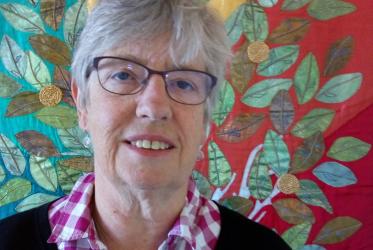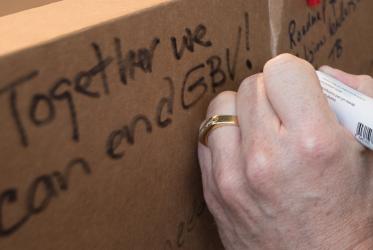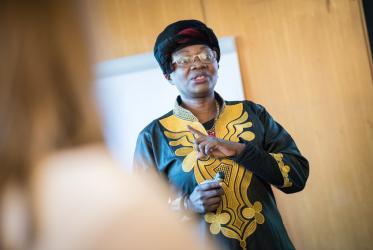Displaying 21 - 40 of 40
10 October 2019
WCC staff looks ahead to 2021 assembly
03 October 2019
Claudia Bandixen: “I don’t have to do it alone”
19 September 2019
WCC organises event on “The Human Rights Situation in the Philippines”
18 September 2019
“Ambassadors” lead Thursdays in Black solidarity
05 September 2019
WCC former staff appointed to expert panel
31 July 2018
Gender-based violence concerns ‘all of humanity’
11 July 2017
Gender justice: over 70 years of struggle
06 October 2016
WCC convenes strategic meeting on sustainable development goals
11 February 2016
Basel University honors Ghanian Methodist theologian
09 December 2015
Women not portrayed equally by news media, shows extensive study
23 November 2015







